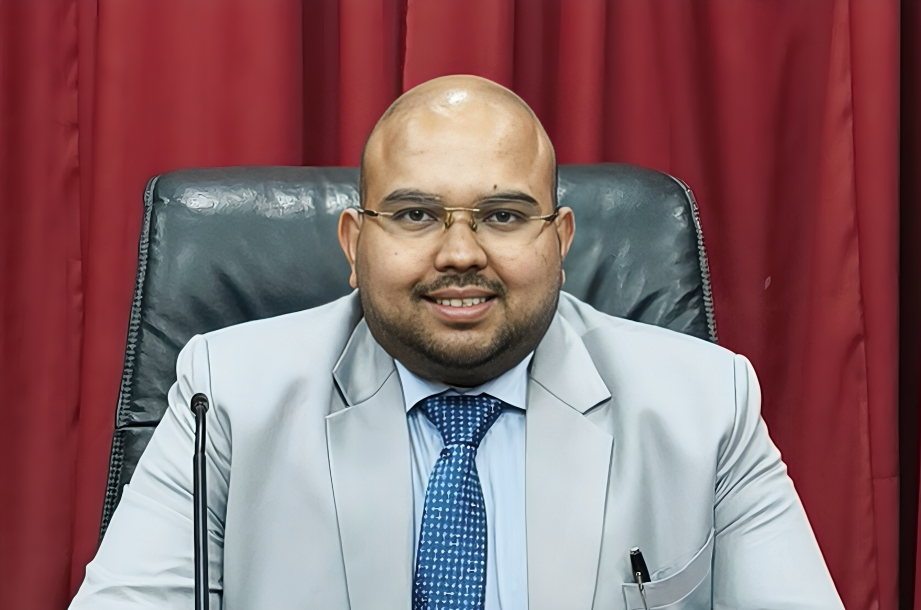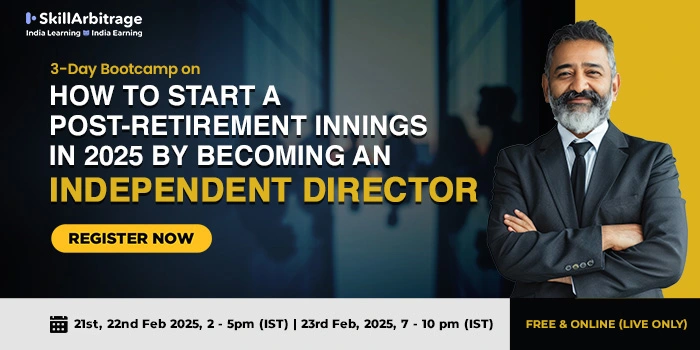This interview has been published by Anshi Mudgal and The SuperLawyer Team
Sir, you’ve built a distinguished career in litigation and dispute resolution over the past nine years. What initially drew you toward advocacy, and how did your early experiences shape your understanding of courtroom dynamics and the art of persuasion?
Since childhood, I was quite clear that I wanted to pursue litigation, my father was into it, so the courtroom atmosphere was something I grew up around. When I began working with Mr. Sanjay Jain, Senior Advocate and former ASG, I truly learned what advocacy means in practice. He never lost his calm, even in the most charged hearings, and always looked for a balanced, midway approach to convince the judge rather than taking an extreme stand.
I remember during the AgustaWestland bail matter, where Senior Advocates namely Mr. Mukul Rohatgi, Mr. Dayan Krishnan, and Mr. Mohit Mathur appeared for the Petitioners and Mr. Jain argued with remarkable composure, relying purely on law and facts, and still managed to persuade the court. That experience taught me that true advocacy lies not in volume, but in conviction, clarity, and restraint and values that continue to guide me in every case I handle today.
You began your professional journey handling complex Money Laundering and UAPA cases. How did working on such intricate and high-stakes matters early in your career influence your legal reasoning, discipline, and approach to strategy building?
Working on complex matters like Money Laundering and UAPA cases early on really shaped the way I approach law. These matters required a lot of in-depth research, especially since UAPA was a relatively new statute at the time. It pushed me to understand the law from its roots and build arguments around evolving interpretations. When you deal with such intricate issues early in your career, you naturally develop a strong grip on smaller issues later. It also taught me the importance of being thorough, disciplined, and strategic because in high-stakes cases, every detail counts.
From assisting on landmark public law cases to now leading high-value commercial and arbitration disputes, how would you describe your evolution as a litigator and the key experiences that have shaped your professional philosophy?
It’s been quite a journey. Starting with landmark public law cases gave me a strong foundation in constitutional principles and the importance of fairness and accountability in governance. Those early experiences taught me how every case, no matter how big or small, impacts real people and public institutions.
As I moved into commercial and arbitration matters, I began to see litigation from a different lens, one that focuses more on strategy, precision, and practical outcomes for clients. Leading high-value disputes has helped me evolve from just being a researcher and drafter to someone who can think on their feet, anticipate the other side’s moves, and guide a team toward a clear strategy.
Overall, I’d say my professional philosophy has been shaped by a balance of both the patience and purpose I learned from public law, and the structure and strategy that commercial litigation demands.
You’ve represented several major PSUs in significant commercial disputes and arbitrations. Could you share one particularly challenging matter that stands out to you and how you approached its resolution both strategically and practically?
One matter that really stands out was an arbitration where I represented BSNL against a Malaysian company, which was being represented jointly by a Singapore-based firm and an Indian law firm. The case arose from BSNL inviting Expressions of Interest (EOI) for associations with external agencies to generate revenue from mobile-based advertising and other related value-added services.
It was a complex and challenging case, both in terms of technical issues and cross-jurisdictional coordination. Despite the odds, we not only successfully defended BSNL’s interests but also secured a favorable award on our counterclaim. It was a deeply satisfying outcome because it required meticulous strategy, detailed preparation, and consistent teamwork. That case, among many others, reinforced my belief that in arbitration, success comes from preparation, clarity, and persistence.
Your practice spans arbitration, land acquisition, and commercial litigation. What aspects of arbitration do you find most intellectually stimulating, and how do you view the future of institutional arbitration in India and abroad?
I find construction arbitration particularly stimulating, as it involves complex commercial and technical issues, often requiring a deep understanding of contracts, timelines, and project execution. Both in India and abroad, construction arbitration is witnessing significant growth, and I believe this field is emerging as a major area of practice.
Regarding institutional arbitration, the future looks very promising. The Government of India has taken several steps to strengthen the dispute resolution framework and promote Ease of Doing Business, including legislative interventions to improve the enforcement of contracts. The Department of Legal Affairs is considering further amendments to the Arbitration and Conciliation Act, 1996, aimed at boosting institutional arbitration, reducing court intervention, and ensuring timely conclusion of proceedings. Additionally, the Ministry of Finance has issued an Office Memorandum promoting institutional arbitration specifically for CPSEs, PSBs, and Government companies, which further reinforces the emphasis on structured and efficient dispute resolution.
Overall, I see arbitration evolving into a more efficient, structured, and internationally aligned system, which is exciting both professionally and intellectually.
Having represented both PSU and private clients, what key differences have you observed in their approach to dispute resolution, and how do you tailor your strategies accordingly?
With a PSU, arbitration is often treated as a formal, drawn‑out process, the state backing, lesser commercial urgency and internal culture mean delays are tolerated and mediation is increasingly preferred.
On the other hand, a private client is driven by commercial pressures to resolve disputes faster, uses institutional or international arbitration, and tends to keep the process aggressive and time‑sensitive.
A PSU often treats arbitration as a background process because of government backing, less commercial urgency and internal culture, employees may be less alert to the complexities of documentation or fast invocation, and the dispute may be allowed to drag. In contrast, a private client is typically more commercially focused, more proactive about documentation and procedural steps, and more driven to resolve quickly (to free up capital, reduce cost and preserve relationships).
Reflecting on your journey from interning at top firms to independently arguing complex matters, what have been some defining challenges or turning points in your career, and what guiding principle has consistently kept you motivated?
In my early years, after leaving the office of the Ld. ASG and joining my father’s practice, I was asked to argue a criminal appeal before the Hon’ble Supreme Court. I contended that since the medical report did not show ‘grievous hurt’, the title to Section 326A IPC – which refers to ‘grievous hurt by use of acid’ – meant that the injury must necessarily be grievous and hence 326A should not apply.
Ultimately, the Hon’ble Supreme Court in *Maqbool v. State of U.P. (2018) held that “merely because the title to Section 326A of the IPC speaks about grievous hurt by use of acid, it is not a requirement under the section that the injuries caused should be invariably grievous.”
The Court overruled the earlier decisions of the Rajasthan and Madras High Courts on that point.
As a result, the judgment became reportable and serves as a leading precedent on the interpretation of Sections 326A and 326B.
What has consistently kept me motivated and is a simple guiding principle is that there’s no substitute for hard work and integrity. In litigation, you may not win every matter, but if your effort and ethics remain uncompromised, growth is inevitable.
Finally, what advice would you offer to law students and young advocates who aspire to build a strong foundation in litigation and arbitration? Are there any specific skills, resources, or habits you believe are vital for excelling in this field, especially in arbitration practice?
For young lawyers who aspire to excel in arbitration and litigation, mastery of the fundamentals such as building a strong foundational knowledge in your chosen domain and sharpening your legal drafting and writing skills is indispensable. But beyond that, the focus must also be on developing the art of cross‑examination: understanding how to ask the right question, lead a witness, expose inconsistencies, and maintain control of testimony in real time. A successful career in litigation (and in arbitration where witness examination still matters) demands consistent learning, relentless hard work, resilience in the face of setbacks, sharp critical thinking, and above all, patience. By combining these competencies, rigorous preparation, adept cross‑examination, and steady professional growth, you set yourself apart in both domestic and global arenas.
How do you maintain a balance between your professional commitments and personal life? What are some hobbies or activities that help you unwind and manage stress during demanding times?
Over the years, I’ve realised that staying committed to one’s personal life actually helps you excel professionally. It’s the support and presence of family and friends, along with those timely meetups, that keep you grounded and refreshed allowing you to return to work with renewed focus and energy.
Managing stress has indeed become a major concern in the legal profession, and it’s important not to let it take a toll on our health. I make it a point to take out time to play badminton regularly, and I also ensure that I participate in the sports activities organised by our Bar Associations from time to time. These moments of recreation really help me unwind and maintain a healthy balance between work and life.
Get in touch with Kartik Rai –





Our country needs more advocates with such a vision.